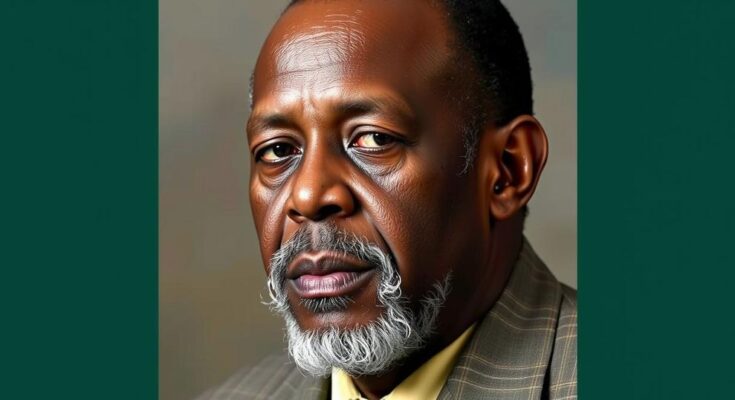Prince Yormie Johnson, a former warlord and influential senator in Liberia, has died at 72. Known for his infamous role during the civil wars, particularly a 1990 incident involving President Doe, he faced calls for prosecution for war crimes but was never tried. His political tenure since 2005 left a mixed legacy, dominating discussions on accountability in Liberia. Activists express disappointment that he evaded justice, echoing the broader issues surrounding war crime accountability in the nation.
Prince Yormie Johnson, a prominent Liberian warlord-turned-senator, passed away at the age of 72. Johnson gained notoriety during the Liberian civil wars, particularly for a shocking 1990 video where he was filmed drinking beer as then-President Samuel Doe faced brutal torture nearby. Despite a call for prosecution for war crimes from the Truth and Reconciliation Commission, he was never held accountable. Since entering the Senate in 2005, Johnson played a significant role in the country’s political landscape, supporting the last three presidential victors. However, reactions to his passing are mixed; while some hail his political contributions, many view him as a reminder of Liberia’s failures in achieving accountability for past atrocities.
Human rights activist Adama Dempster expressed that Johnson’s death represents a setback for victims who anticipated justice given his civil war involvement. Approximately 250,000 individuals lost their lives during the tumultuous period, leaving many survivors to cope with lasting trauma. Although the cause of Johnson’s death remains undisclosed, President Joseph Boakai, whom Johnson endorsed in the previous election, recognized him as a pivotal figure in Liberia’s political history.
In the late 1980s, Johnson’s Independent National Patriotic Front of Liberia was instrumental in capturing and murdering President Doe, an act he later acknowledged but justified as necessary for defending the country. Transitioning into politics, Johnson was credited for improving the lives of constituents in Nimba County, though he faced serious allegations of corruption, including misuse of governmental funds and vote trading in elections. Additionally, he was sanctioned by the United States in 2021 for his alleged corrupt practices. Johnson was respected in his home region, viewed as a liberator, yet elicited resentment elsewhere due to perceived impunity for his war crimes.
Prince Yormie Johnson is a significant figure in Liberia’s complex history, marked by civil wars that devastated the nation from 1989 to 2003. His notoriety is partly due to the horrific video footage from 1990 depicting his defiance and indifference during the torture of President Samuel Doe. As a warlord, he led troops known for their brutality, yet later successfully transitioned into a political career, becoming a senator and holding an influential position in the Liberian government. His death marks a pivotal moment in the ongoing dialogue about justice and accountability for the severe human rights violations that occurred during the civil conflict.
Prince Yormie Johnson’s death at 72 has sparked a complex discussion surrounding his legacy, blending admiration and condemnation. While some celebrate his achievements in politics and contributions to improving lives in his constituency, others lament that he escaped accountability for his war crimes. As Liberia continues to grapple with its painful past, Johnson’s legacy will undoubtedly remain a contentious subject, reflecting the country’s enduring struggles with justice and reconciliation.
Original Source: www.bbc.com




